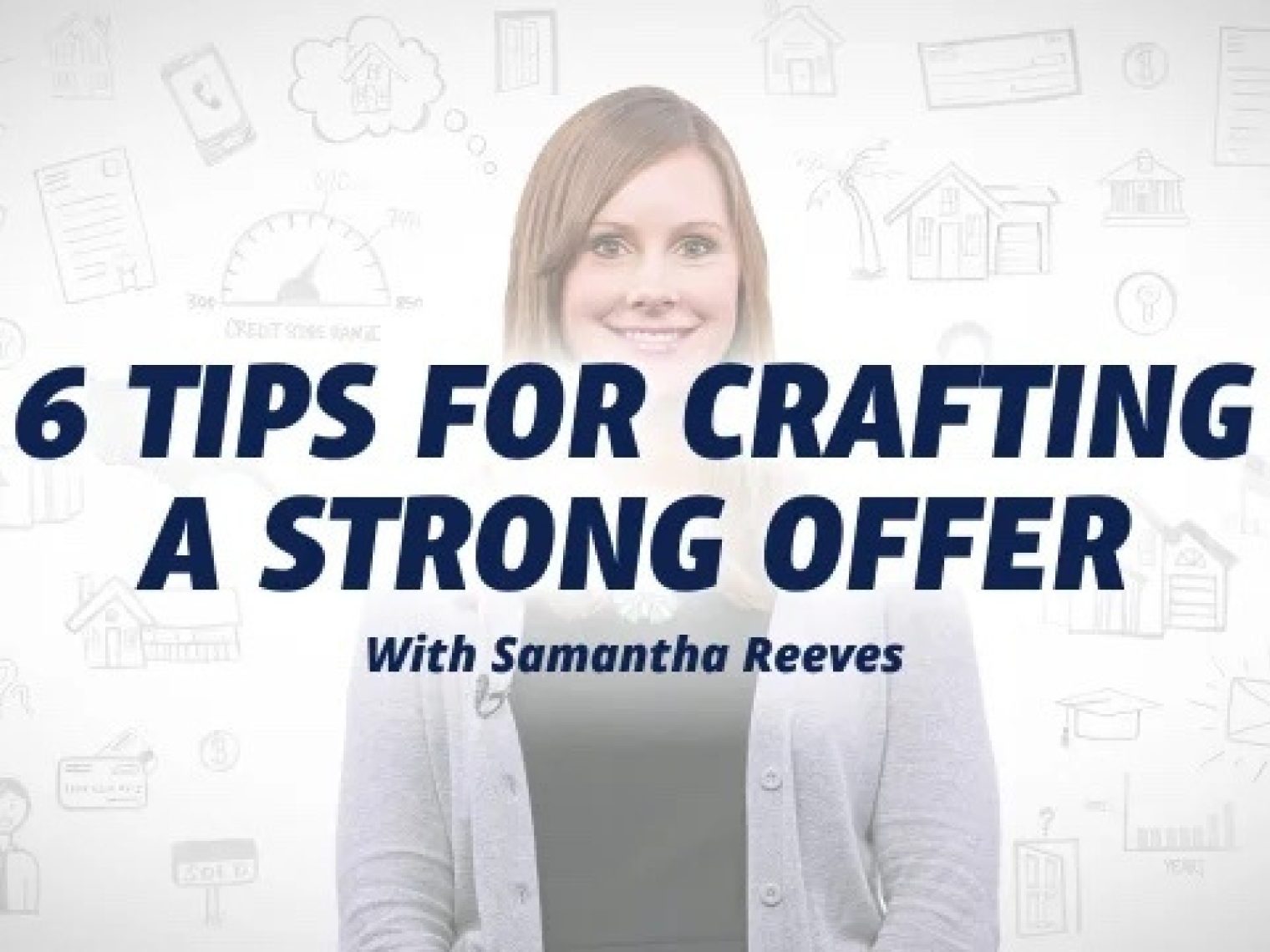If you're a Veteran, active service member or part of a military family, owning a home may be an important goal for you. VA loans are designed to help the military community achieve homeownership as a thank-you for serving the country. But these loans can certainly come with moments of frustration and uncertainty.
Whether you're buying your first home or thinking about a new mortgage, we’ve compiled common VA loan questions and provide answers to help you get the most out of your VA home loan.
Eligibility FAQs
How hard is it to get a VA loan?
While a VA loan is a specialized mortgage product, it's not significantly different or more difficult to obtain than any other mortgage type. With VA loans being a $0 down payment product, it's arguably easier to obtain without the hurdle of needing 3% or more for a down payment.
Do I need a COE to start the VA loan process?
You don't need to have your VA Certificate of Eligibility (COE) to start the VA loan process. It's common for lenders to get this document for you a little later down the road. You can certainly obtain a copy of your COE if you're concerned about your entitlement amount or just feel better having proof of your benefit.
Going online through the VA's portal is one of the most common ways to request your COE. However, you don’t need your COE in hand to get started. A VA-approved lender like Veterans United can request your COE for you and begin the prequalification and preapproval process at the same time.
Can I use a VA loan more than once?
Once you earn the VA home loan benefit, it's yours for life. This isn't a one-time lending option or a program exclusively for first-time homebuyers. You can use these benefits over and over again. In fact, it's possible to have more than one VA loan at the same time. So don't let anyone claim you're ineligible because you had a VA loan a decade ago.
Do you have to tell home sellers you're using a VA loan?
Real estate contracts typically detail how the buyer is financing the property (cash or mortgage loan). Prospective buyers using a home loan will usually need to specify the loan type. Some sellers shy away from considering VA offers, often because of myths and misconceptions about how VA loans work. Getting preapproved and having a VA-savvy real estate agent are two key steps that can help.
VA Credit Requirement FAQs
Should I check my credit before applying?
You don't have to check your credit before applying. That said, your credit profile plays a crucial role in your ability to land a home loan and the type of rates and terms available. Examine your credit report for errors, which can be anything from accounts that aren't yours to reporting errors regarding late payments. About a quarter of all credit reports contain errors serious enough to derail a home loan, according to the U.S. Public Interest Research Group.
Why does the credit report I received from a credit monitoring service differ from the lender?
Your free credit report typically does not contain your credit score. This is something you have to pay to see, and as far as mortgages go, it's often best not to waste your money. That's because lenders see different scores than consumers, and they use a formula weighted especially for mortgage lending. What your loan specialist pulls can and often does look different from the "consumer" score you shelled out money to see. The only way to really know where you stand is to have a lender pull your credit.
Will shopping around hurt my credit?
It's always a good idea to compare costs, VA loan rates and terms from multiple lenders. Those don't always have to be the deciding factors, although they'll certainly play a significant role. It's true that a "hard inquiry" on your credit can cause your score to dip a few points, but it doesn't happen every time. More importantly, the credit bureaus will treat multiple inquiries from mortgage lenders within a month or so as just one single pull rather than have each one potentially drag down your score. That allows you to shop around with confidence.
Employment and Income FAQs
Are gaps in employment history a problem?
Lenders ideally want to see you've had your job for at least two years. That's not always feasible, especially for Veterans who recently separated from the military. So it's possible to have fewer than two years of employment and still secure financing, but it'll require a closer look by your loan specialist.
Lenders want to see continuity between your previous work, education, MOS or experience and your current employment. But even if there is continuity, if there was a gap of unemployment, you'll likely need to wait until you've been back to work for a certain number of months — the length can vary by lender and often corresponds to the duration of your job gap.
What happens if I change jobs during the mortgage process?
Once you're under contract on a home, change is not your friend. Lenders need to see stable, reliable income streams that are likely to continue. A job or career change can halt your VA loan process.
Likewise, lenders want to make sure your credit profile and assets remain steady while you're waiting for the underwriting process to wind down and the issuance of a clear-to-close. Putting a bunch of furniture on a credit card or buying things like a car or a boat before your loan closes will set off some red flags and may stop your loan immediately.
Are there special requirements if you're self-employed?
Self-employed Veterans will almost always need to provide at least two years of tax returns to properly document their income to a VA lender. That's just the nature of self-employment, which isn't always stable and reliable. But you'll also likely need two years of tax returns if you work for a family-owned business or are otherwise employed by a family member. Lenders want to see a consistent, sustained pattern of income over time, especially given the potential conflict of interest.
What is residual income?
Residual income is an incredibly important financial requirement unique to VA loans, and it's a major reason why no other loan program has had a lower foreclosure rate over the last five years. The VA wants Veterans to have a minimum amount of money left over each month after the mortgage payment and other major expenses in order to cover everyday expenses like gas, groceries, health care and more.
The benchmark varies by family size and geography. Heading into the VA loan process, it's important to understand that you're going to have to meet the residual income guideline. This is another area where you may have to tweak your desired loan amount to make the numbers work.
Does child support count as income?
You may be able to count any child support you receive as effective income, but it'll likely need to meet some lender requirements. Generally, lenders want to see a sustained pattern and a likelihood that the support will continue for at least a few years after the loan closes. You'll likely need to have been receiving it for at least three months if not more. On the flip side, if you pay child support, that outlay will be counted in your debt-to-income ratio and residual income calculations.
Can I get a VA loan with late debt payments?
The requirements for a VA loan stipulate that within the past 12 months, applicants cannot have more than one late debt payment on a single account. So if you slipped up four months ago, you might need another eight consecutive months of on-time payments before being able to pursue a VA home loan. Veterans United currently allows up to one 30-day late payment in the previous 12 months on VA purchase loans.
What if my DTI Ratio is high?
The VA wants borrowers to have a debt-to-income (DTI) ratio of 41 percent or less. If you're uncertain about the health of your DTI ratio, don't head into the loan process wedded to a specific loan amount. Lenders calculate that ratio using the anticipated monthly mortgage payment for the loan amount you're seeking, including taxes and homeowners insurance.
If your DTI ratio is too high, one way to bring it down is to simply seek a lower loan amount. You can play with the numbers until they work, provided you can still find what you want at a lower price point. Otherwise, you'll need to come up with additional income sources.
VA Loan Property FAQs
Do I have to live in the property I purchase?
The VA program has occupancy requirements because it's a program for primary residences. Generally, you're supposed to occupy the property within 60 days of closing. A spouse can fulfill the requirement, which is one of the ways deployed or unavailable military members can purchase homes while serving.
However, this requirement can present obstacles for married couples who might need one spouse to stay behind or for military contractors who spend the majority of the year living abroad. If you and your co-borrower are expecting some potential occupancy issues, talk through them with your loan specialist as soon as possible.
Can I buy a second home with a VA loan?
Buying a second home for the sole purpose of making it a vacation home or investment property is not allowed with a VA loan. However, it is possible to have two homes with a VA loan. If your first home is paid off, you can keep it and get a one-time restoration of VA entitlement to buy a second home. If your first home isn’t paid off and you want to keep it, your VA loan eligibility depends on any remaining entitlement you have left VA loan limits.
Can I build a house with a VA loan?
You can absolutely use the VA loan for new construction. But you will likely struggle to find a VA lender willing to actually front the money to pay for the home to be built. There's a lot of risk involved in homebuilding, which lenders generally try to avoid.
What's more common is you'll need to get a short-term construction loan from a homebuilder or another financial institution to actually fund the home's construction. Then, you'll refinance that short-term loan into the VA program using what's called a construction-to-permanent refinance. You may not want to spend a ton of time looking for VA lenders willing to pay for construction and instead start searching for the right builder.
Can I purchase a short sale or foreclosed property?
You can use your VA home loan benefits to purchase a foreclosure or short sale. But properties that are in disrepair or that have sat vacant for a while may pose a problem. Some foreclosures are in better shape than others.
Homes in need of repair or renovation will likely trip the VA property requirements, and it's tough to get a bank or a seller to make repairs on a foreclosure. Again, these aren't fixes that you can pay as the buyer. You'll want to make sure any foreclosure you're considering is likely to make it through the VA appraisal process.
Can I borrow more than my home is worth?
Unfortunately, you won't be able to ask the lender for an extra $15,000 to make renovations or upgrade the kitchen. They're going to lend whichever is less between the purchase price and the appraised value of the property. So if you agree to purchase a home for $150,000 and the appraised value is $160,000, you're going to get $150,000.
Conversely, if it's a $150,000 purchase, but the appraised value is $140,000, you'll need to renegotiate with the seller or make a down payment to cover that $10,000 gap. The only exception here is if you pursue an Energy Efficient Mortgage (EEM), which allows qualified borrowers to add up to $6,000 in energy-efficiency improvements.
Should I worry about the VA appraisal?
The VA wants Veterans to purchase homes that are "move-in ready." To that end, independent VA appraisers have to make sure your home purchase meets a set of Minimum Property Requirements (MPRs) as part of the VA appraisal process.
Any defects or issues noted by the appraiser have to be completed before the loan can close. You also want to be careful regarding unique properties (log cabins, geodesic domes, large acreage) for which it can be tough to find good comparable recent home sales. A good real estate agent who understands the VA program can help you avoid properties that are likely to pose problems during the appraisal process.
Should I get a home inspection?
This is more of a rule than a tip. We're talking about one of the biggest investments of your life. Why wouldn't you want a clear look at what you're getting and any hidden problems? The home inspection allows you to renegotiate items with the seller and helps ensure you don't purchase a lemon of a house. Unlike the appraisal, a home inspection isn't mandatory. But you should think of it that way.
VA Loan Cost FAQs
Will I need money upfront?
VA loans do not require a down payment in most cases, and it's not uncommon for the seller to pay all of your closing costs. But you'll still need money upfront to cover things like an earnest money deposit, the appraisal and a home inspection. Again, it's possible to get all of that money back at the closing table if the seller agrees to pay for closing costs.
Should I make a down payment?
About 8 in 10 VA homebuyers purchase without making a down payment. Putting money down can significantly improve your chances of securing your VA loan. A down payment decreases the borrowed loan amount and lessens the risk for a lender. It also results in lower monthly payments and the VA funding fee.
Can the seller pay all of my closing costs?
You can ask the seller to pay all of your closing costs, regardless of the total amount. The VA does have a cap on seller concessions at 4 percent of the loan amount. But feel free to ask for the moon when it comes to the closing costs. There's no guarantee the seller will bite, but you won't know if you don't ask.
General Mortgage FAQs
What is a "no closing cost" loan?
Mortgages are a product, and people in the industry don't work for free. There are always going to be costs that come with securing a home loan. It's more a matter of who pays them and how. Lenders offer "no cost" loans because they still make money on them. The reason you don't pay closing costs on these is because the lender pays them for you.
Here's how: The lender covers those additional costs by giving you a higher interest rate, which you're stuck with for the life of the mortgage or until you refinance. That means you're paying more each month.
What is a preapproval letter?
There isn't a ton of sense in looking for homes before you've got a clear idea of what you can afford and how much a lender is likely to extend. VA loan preapproval helps with exactly that. Preapproval is important in that it shows sellers you're a serious candidate who's likely to make it to closing day. A prospective VA homebuyer with a preapproval letter is a welcome sight among home sellers and real estate agents.
What are contract contingencies?
Work with your real estate agent to make sure the offer you make on a home includes various contingencies that protect you. One common contingency is to stipulate that you get your earnest money back if you decide to walk away because of a problematic home inspection. Another is to make the purchase contingent upon your ability to sell your current home.
What does NOV mean in real estate?
NOV stands for "Notice of Value." The Notice of Value is a document issued by the Department of Veterans Affairs after a home appraisal has been completed and states the value of the property determined by the appraiser.
This value is crucial since it determines the maximum amount the VA will guarantee for a loan on that property. It helps ensure that Veterans are getting a fair deal on their home purchase and the loan amount is appropriate for the property's value. If the sales price of a home is higher than the value stated in the NOV, the borrower may need to renegotiate the price, pay the difference or possibly look for a different property.
Have More VA Loan Questions?
If we didn’t cover a topic or question you were looking for, comment your question below!
Related Posts
-
 How to Make an Offer on a HouseOnce you’ve found the right home, you need to know how to put together a purchase offer. Learn tips for putting an offer on a house with a VA loan.
How to Make an Offer on a HouseOnce you’ve found the right home, you need to know how to put together a purchase offer. Learn tips for putting an offer on a house with a VA loan. -
 4 Tax Breaks for Homeowners for 2025Owning a home not only offers a sense of security but can also lead to significant tax savings. Discover the top tax deductions and credits available to homeowners so you can enjoy the perks of homeownership – even at tax time.
4 Tax Breaks for Homeowners for 2025Owning a home not only offers a sense of security but can also lead to significant tax savings. Discover the top tax deductions and credits available to homeowners so you can enjoy the perks of homeownership – even at tax time.

